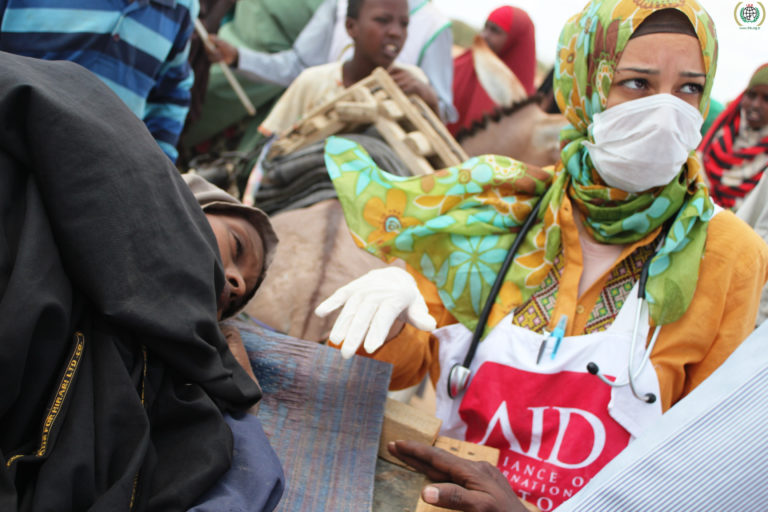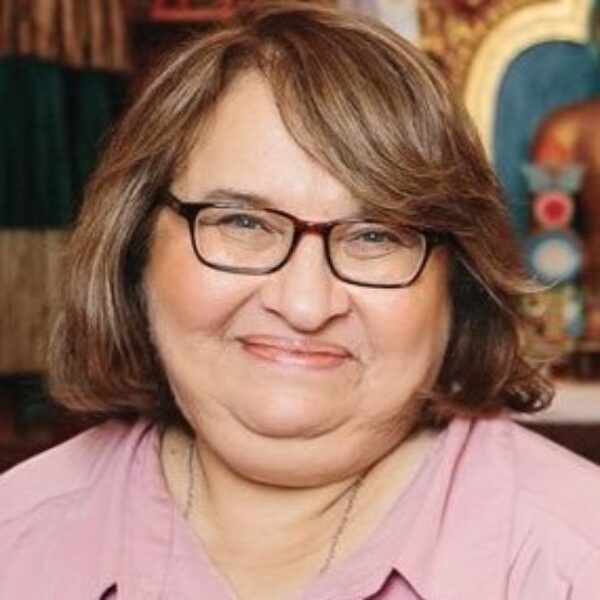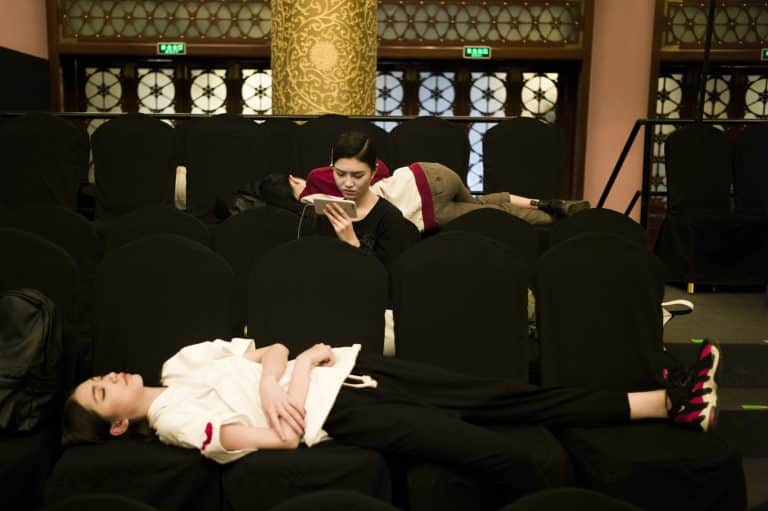
Image by IHH Humanitarian Relief Foundation/Flickr, Attribution-NonCommercial-NoDerivs.
Care for the Caregiver: The Importance of Self-Compassion
About a month ago, I had the chance to attend the Skoll World Forum on social entrepreneurship in Oxford, England. I have long wanted to go, and conditions came together this year for it to be possible. I felt that I was likely the most relaxed person there: I didn’t have a project I was seeking funding for, a particular connection I wanted to make, and I certainly wasn’t seeking acknowledgment for anything. I was going as a participant eager to learn.
I wanted to understand more fully what social entrepreneurship was — particularly as distinguished from social activism, humanitarianism, or, for that matter, plain old service. So I asked around. The descriptions of social entrepreneurship that I heard usually began with an acknowledgment of the fact that, while many social systems in existence are stable, they are also unjust. If you can’t get health care or a lawyer, or if there are land mines in your area long after a war, it’s “just the way things are.”
The individuals and groups who are determined to disrupt the status quo are staunch in their active commitment to open up the space for solutions to take root, to grow to scale, and to be established in a way that become the new reality: a still-stable but more just system. It’s massive work — seeing what isn’t in the world but could be, and should be.
You can imagine my surprise when I ended up being put on a panel at the last minute. I walked the the room to sit in the audience and was told my chair was up front. My fellow panelists were exemplary social entrepreneurs, and I knew I’d have a lot to learn from them.
One notable panelist was Bart Weetjens, a Zen Buddhist monk who is the founder of Apopo, a Belgian NGO that trains African giant-pouched rats to detect the odor from volatile compounds in land mines, and now to detect tuberculosis in sputum samples. Thanks in large part to Apopo’s work, Mozambique has been declared free of all known land mines. Having recently thought and written about the pervasive presence and detrimental effects of land mines around the world, I found myself overwhelmed by Bart’s description of his extraordinary work.
While there are still approximately 110 million anti-personnel land mines in the ground, and another estimated 100 million stockpiled around the world, Apopo’s work has made a real difference, and provides hope for further measurable change. As I listened, I was not only moved and inspired by the results of Bart’s efforts, but also by his creativity, innovation, and ability to think in a way that challenges societal assumptions, judgments, and mores. After all, Bart looked to rats for their positive potential, and was able to harness their intelligence for immense good.
I also felt a profound shift in my perspective in response to Karen Tse, another panelist who is the founder of an organization called International Bridges to Justice. As Karen explained to me, most people in the world who are tortured are not political prisoners as we might imagine. They are brought up on a criminal charge, and simply don’t have legal representation to protect their rights. Karen’s organization is now working in 40 countries to provide such representation.
It occurred to me that at the core of Karen’s work — and the work of those sitting beside me that day — is an exercise in mindfulness, of course at a macro-scale. Social entrepreneurs pay attention to the world, and to social issues specifically, in a way that allows anger and hope to coexist. They challenge the status quo in order to create space for insight, new perspective, and ultimately, palpable change. And while their work may be catalyzed anger, they are able to change the quality of their anger into fuel for good, they alchemize their anger at injustice into real pragmatism.
But amidst my amazement in hearing from these different people, I thought to myself, What is the shadow side for people doing all this good? In a way of life that is so mission driven, so acutely aware of suffering, it is very possible to feel the need to hide one’s vulnerability. I wondered how such dogged commitment to focusing on the world’s injustices didn’t automatically translate to overwhelm, along with feelings of frustration and hopelessness. Above all, I found myself wondering,Who takes care of the caregiver? Who keeps the door open for change for the changemaker? Bart himself is also one of the founders of the Wellbeing Project, which is dedicated to bringing about a meaningful shift in the field of social change through creating a culture that is supportive of inner well-being. I hadn’t known that the project existed, but this goal was part of my own inspiration to be at the world forum.
I’ve been working with the Garrison Institute on a program for international humanitarian aid workers, exploring tools like yoga and meditation as tools for changemakers and caregivers to cultivate their resilience skills. In both of these projects, I sensed an admiration for those working to build a better world. I sensed a commitment to supporting people on the front lines by remembering they are whole people, and working to keep that reminder alive.
Perhaps the great irony of my questions is that the work of making change is deeply fulfilling — that’s why changemakers do it — and, therefore, their emotional investment is often what precludes the establishment of necessary boundaries or work/life balance. And yet, boundaries and time for self-care are essential elements to feeling whole, healthy, and, ultimately, able to do good, sustainable work. That’s where self-compassion comes in.
To be able to cultivate self-compassion and resilience, we need to recognize the elements of our spirits that have been changed by our work, so that we can see that aspect of ourselves and our efforts clearly. When we allow ourselves to feel fulfilled by this work, then we can turn toward our needs to create more boundaries, and take time for self-care. We aren’t collapsing into hopelessness, but rather accepting and acknowledging the challenging aspects of our work.
While the sensibilities of most changemakers tend to be determined, focused, and action-oriented, there is also great need for balance or equanimity. We open our hearts and minds while also accepting that we cannot create change singlehandedly. We may even need to accept the fact that we can’t achieve all that we seek to change. This isn’t defeatist, but an attitude suffused with the wisdom of equanimity.


Share your reflection